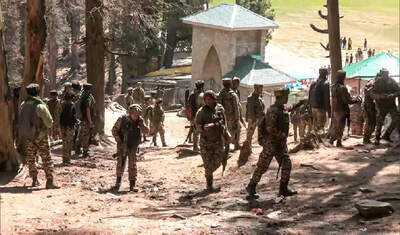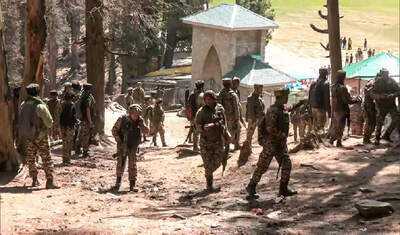
Uttar Pradesh’s security and intelligence services have stepped up their investigations into any connections to terrorist groups and Pakistan’s ISI intelligence agency in the context of rising tensions with Pakistan. The state has increased security along the Nepal border and begun new monitoring on Rohingya and Bangladeshi infiltrators.

The extent of terrorist influence discovered in the state during the previous eight years is shown by data made public by security services. The dismantling of 142 sleeper cells connected to ISI and other terrorist groups has taken place. During this time, 230 criminals—including a terrorist—were also slain in police contacts.
Of those arrested, 131 were discovered to have provided terrorist organizations with vital information and sanctuary to their operatives. Eleven of them had a direct connection to activities that funded terrorism.
The Anti-Terrorism Squad (ATS) has stepped up its activities in response to Chief Minister Yogi Adityanath’s 2017 mandate for a zero-tolerance policy against crime, terrorism, and infiltration. Sleeper modules of ISI, PFI, Jamaat-ul-Mujahideen, Islamic State, and other organizations engaged in anti-national actions have been the focus of the crackdown.
Additionally, the ATS has taken action against people engaged in the distribution of counterfeit money. A total of 41 suspects were detained and seized with counterfeit Indian cash totaling Rs 47.03 lakh.
The ATS detained 173 infiltrators, mostly Rohingya and Bangladeshi nationals, in an attempt to combat illegal immigration and conversion schemes. Additionally, more than 20 active syndicate members who were involved in illegal conversions were caught.
Four Chinese nationals were among 19 members of a cybercrime gang who were detained by the state police for their participation in actions that threatened internal security, further tightening cyber monitoring.
With persistent attempts to neutralize threats from extremist networks and cross-border incursions, the state’s security system is on high alert.
-
Posters of Pakistani Terrorists Emerge After Pahalgam Attack

-
Posters of Pakistani Terrorists Emerge After Pahalgam Attack

-
Tragic Deaths in Amritsar: 15 Lives Lost to Contaminated Liquor

-
Maharashtra Board 10th Result 2025 Announcement Expected Soon

-
IPL 2025 to resume from May 17; Check complete details here
